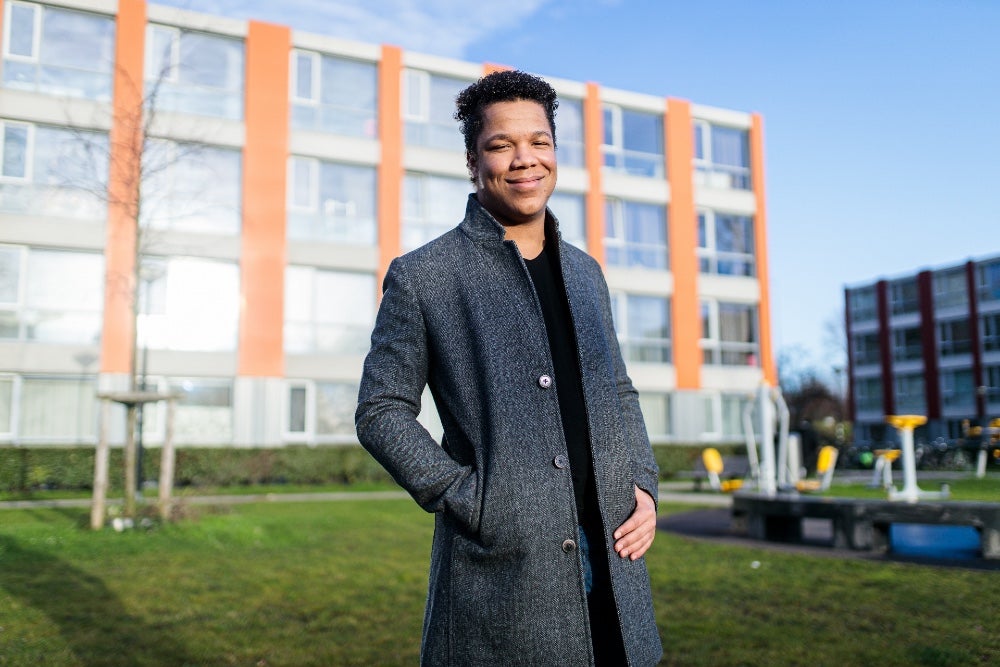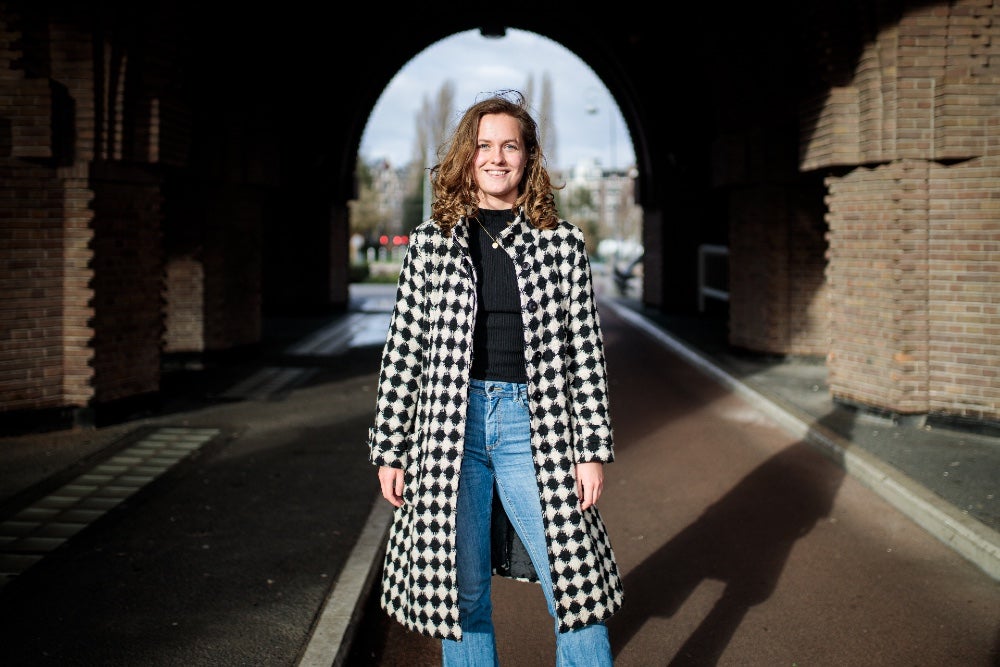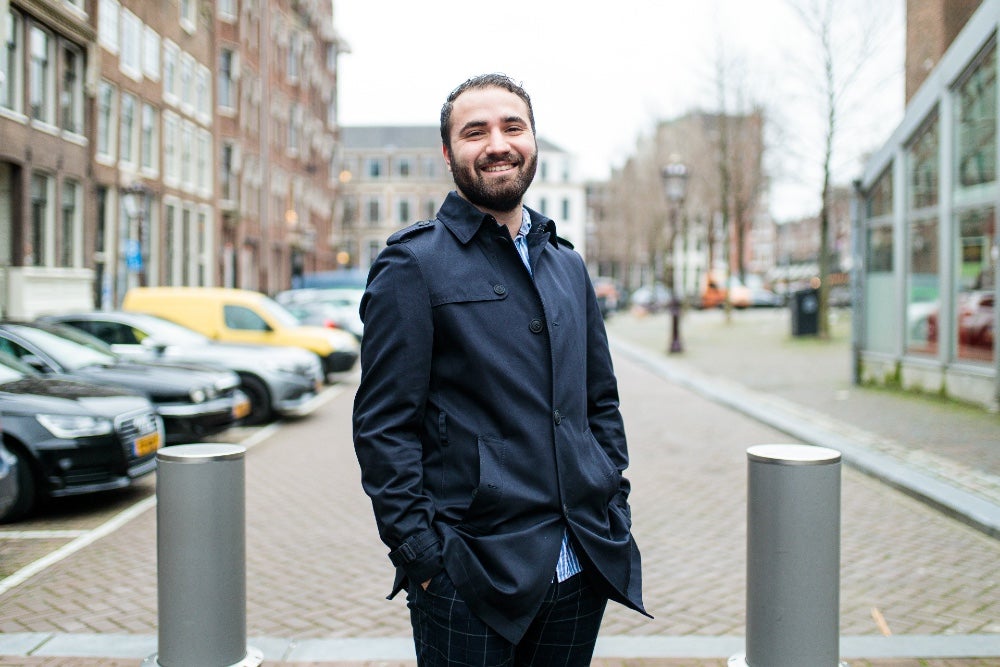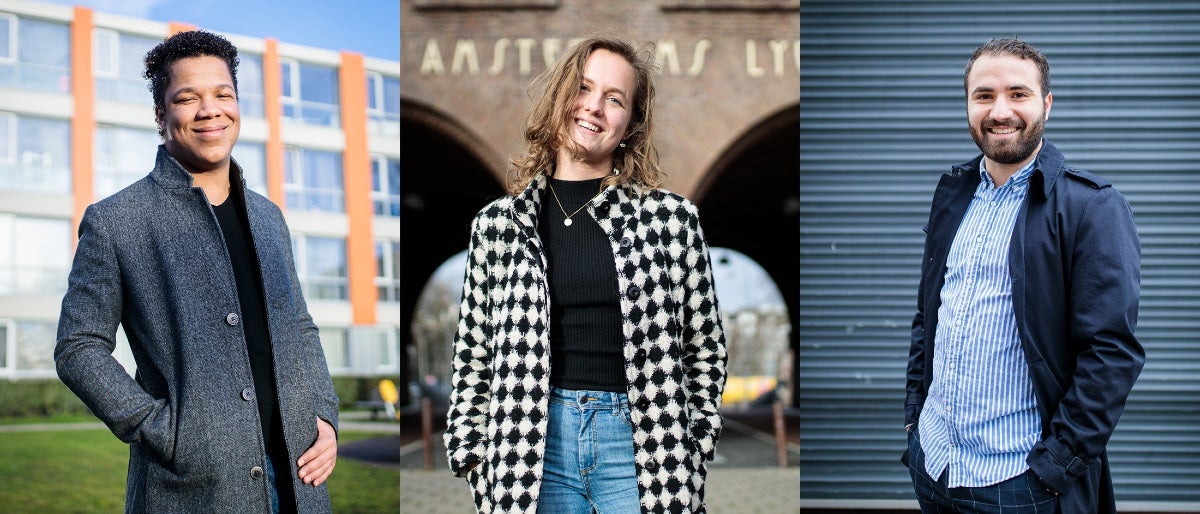The VU alumni family is now more than 100,000 strong. Where did they end up after their studies? In this section, we feature three alumni from the same degree programme. This time: the first graduates of the programme Philosophy, Politics and Economics.

Simba Martens (23) graduated in 2019 and is involved in a vote compass aimed at students.
What did you think of your bachelor’s programme?
„There are many multidisciplinary study programmes to choose from, but most of them aren’t very interdisciplinary. Philosophy, Politics and Economics, however, constantly combines three different disciplines. I enjoyed thinking about economics and politics from a philosophical point of view, as all economic considerations can only be formulated based on philosophical principles. For instance, if you were asked to choose between economic efficiency and economic equality, you can only make a choice based on the kind of society you envision."
„I also really liked having the opportunity to do an internship. When I was in my third year, I interned in the United States and lived nearby Washington. It was around the time of the midterm elections. Through my American professor at the Vrije Universiteit, I ended up interning with the Democrats’ congressional campaign. It was quite exciting, as the vote in that district had been heavily Republican for 38 years. Still, we ended up winning."
You’re also involved in a vote compass specifically for students. Can you tell us more?
„Through Room for Discussion, a platform for students, we organise live interviews with politicians and writers about political and economic topics. For instance, we recently interviewed Thomas Piketty and Thierry Baudet. We have now also started interviewing all of the major party leaders, with whom we discuss issues that students and young people take an interest in, such as student loans, housing and the effects of COVID-19 on young people."

Nadine Hoen (22) graduated in 2019 and works as a debate coach.
Why did you choose PPE?
„Philosophy really is my one true love, but debating is a very close second. Both revolve around that one question: how can we make the world a better place? I didn’t feel as if only studying philosophy would be a smart move, as I wanted to be able to put it into practice – to be involved in policy-making, for instance. I like thinking about why people do the things they do, how they justify their choices and how we can stir those choices in a certain direction."
You now work as a debate coach. What do you like so much about debating?
„Debating makes you dig into all these different topics that you wouldn’t normally dig into. I would never delve into the gas crisis in Groningen or the refugee crisis on my own. I was already part of the debate team in secondary school and participated in multiple competitions. Ever since I studied PPE, I’ve been much more aware of how policy is formulated, but also of how to best defend policies in the public debate. That’s also how I now look at the current press conferences. I recognize why certain arguments are being used, I’m able to identify different tropes and sometimes think to myself: I personally would have made better use of my hands. I then put those insights to use in my job."
What’s in store for the future?
„As a coach, I travel all around the country to teach students as well as teachers in primary and secondary schools. In the future, I’d like to be involved in formulating education policy. I wish that all students in secondary school were taught subjects such as debating and philosophy. I never would have thought of studying PPE if I hadn’t been taught those classes before."

Süleyman Tosun (22) graduated in 2019 and hopes to become a diplomat in the future.
What did you think of your bachelor’s programme?
„I liked that we were already getting so familiar with the workfield. During our second year, we spent some time getting to know the healthcare system. We then paid a visit to a government agency that determines which medicine should be part of the basic health insurance package and former health minister Ab Klink gave us a lecture."
In which other ways did the programme get you familiarised with the working world?
„A concrete example of that would be a think tank named The West Wing by the Ministry of Foreign Affairs, which I participated in after obtaining my bachelor’s degree. Together with other young people from different backgrounds, we closely examined the challenges being faced in the Horn of Africa. I think of that experience as far reaching, because we were able to approach the issues at stake from a multidisciplinary point of view – just like I was taught during my studies. And our efforts turned out to be useful: I recently stumbled upon our findings in a policy recommendation."
You’re now in the running to be part of ‘het diplomatenklasje’, a diplomatic training programme that was set up by the Ministry of Foreign Affairs. What are your dreams for the future?
„I’d love to become a diplomat in a conflict zone such as Libanon. When I was there for an internship, I witnessed how many of the issues that the Middle East is dealing with somehow seem to come together in Libanon. I know what it's like to live in between different cultures, since my mom is Moroccan and my dad is from Turkey. To be able to solve many of these issues, it’s important to see beyond different groups of people. That’s where The Netherlands as well as the local population have potentially the most to gain. I believe my strength lies exactly there."






